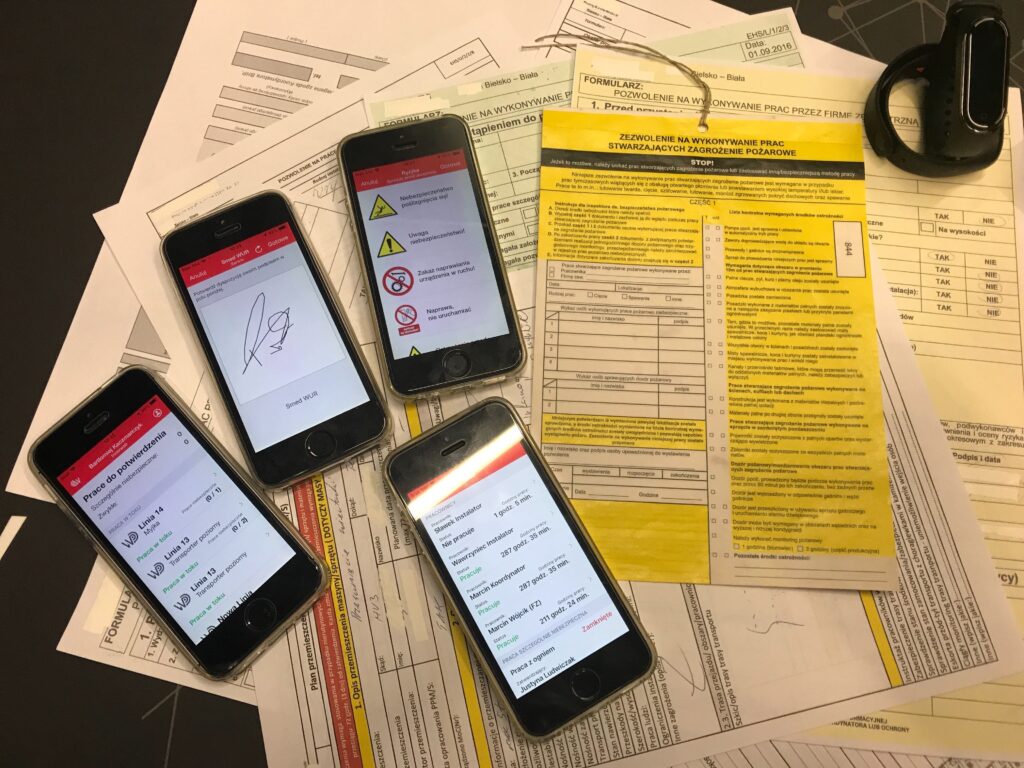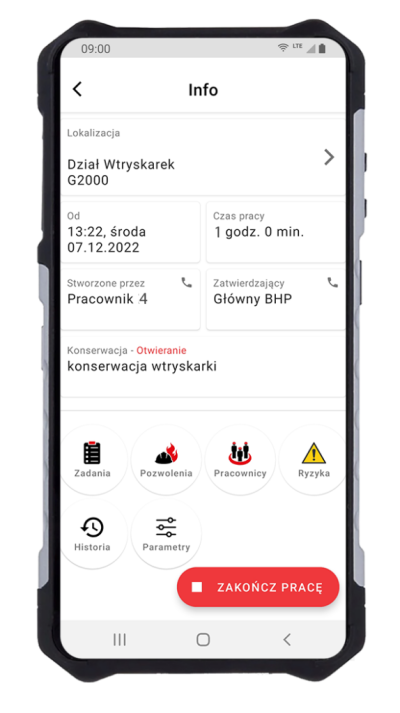MOBILE WORK PERMITS - case study
INNERWEB SYSTEM
Innerweb provides innovative solutions in response to the daily challenges of companies in the industrial sector. A wide range of functionality meets the needs of many industries.
The chemical industry is a unique branch of the economy with many threats and risk factors. Our client, Grupa Azoty S.A. – is the largest fertilizer and chemical concern in Poland and at the same time one of the leaders in the European market.
CHALLENGE
Every day, dozens or even hundreds of hazardous jobs are performed at the Azoty Group. For each of them, an appropriate document must be issued – a work permit. This is a time-consuming activity, taking up to half an hour. In addition, the work performed on the premises of the Azoty Group requires constant inspection, especially those performed in high-risk and hazardous areas.

Issuing hundreds of work permits a day
Organizationally time-consuming process that requires many people to sign, check and verify
Need for constant supervision of the work
PROCESS FLOW
In order to streamline and automate the company’s processes, we deployed a network of radio beacons (iBeacon) throughout the plant. All employees received special cards or phones and access to our application, which is based on geolocation of employees, machines and equipment and collects thousands of data streams.
SOLUTION
Thanks to geolocation, the system verifies the existing hazards and required PPE at a given work site. The application allows mobile work permits to be issued and opened from the location.
It takes less than a minute to create and upload the necessary document, and with the biometric signature feature, approving permits takes seconds.
What’s more, those overseeing the process have a constant view of where all the work is currently being done on the site. Working remotely, they also receive reports and information, as well as access to a map where they can observe the exact movement of workers.
BENEFITS
- Time savings - shortening the organizational process by about 60%.
- Elimination of work stoppages associated with waiting for a permit
- Efficient use of human resources
- Automation of daily processes in the company
- Constant supervision of processes - real-time monitoring
- Automatic creation of data history for statistics, analysis and prediction of future failures.


